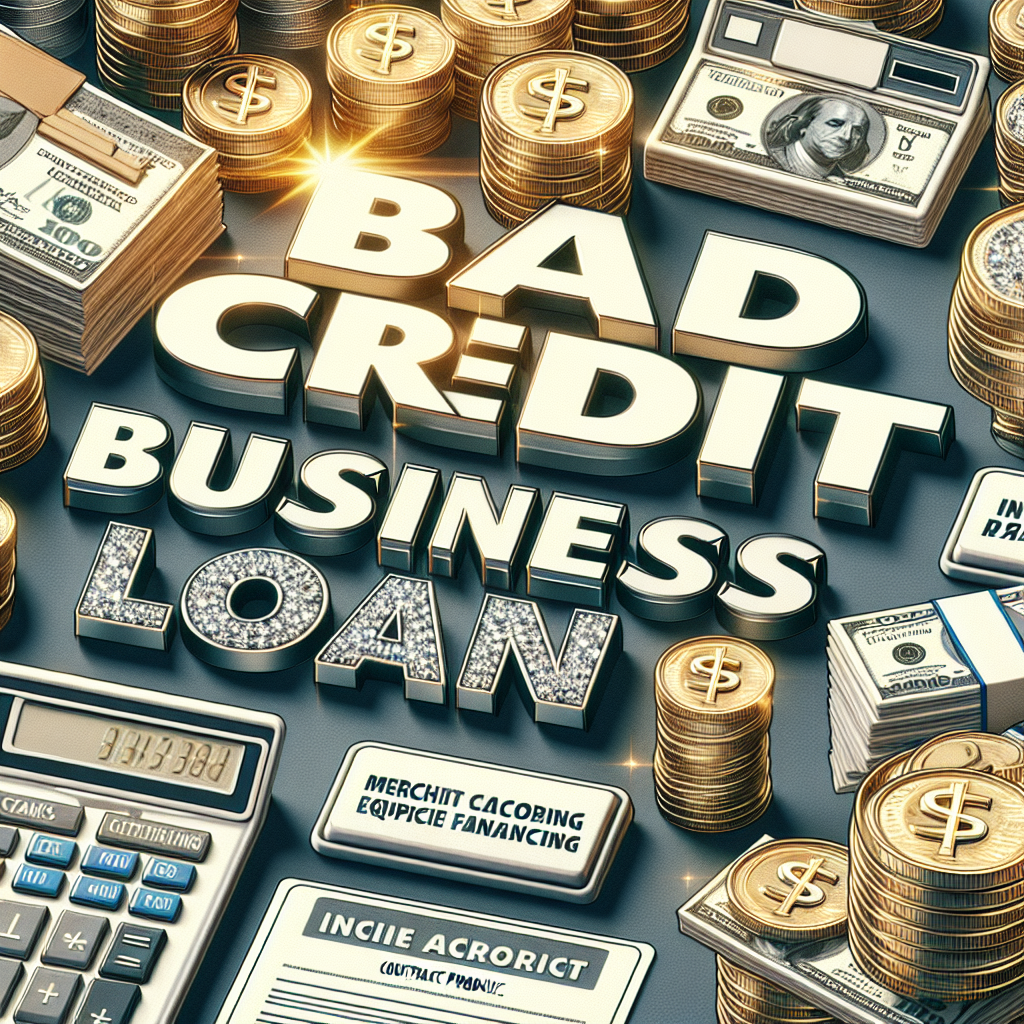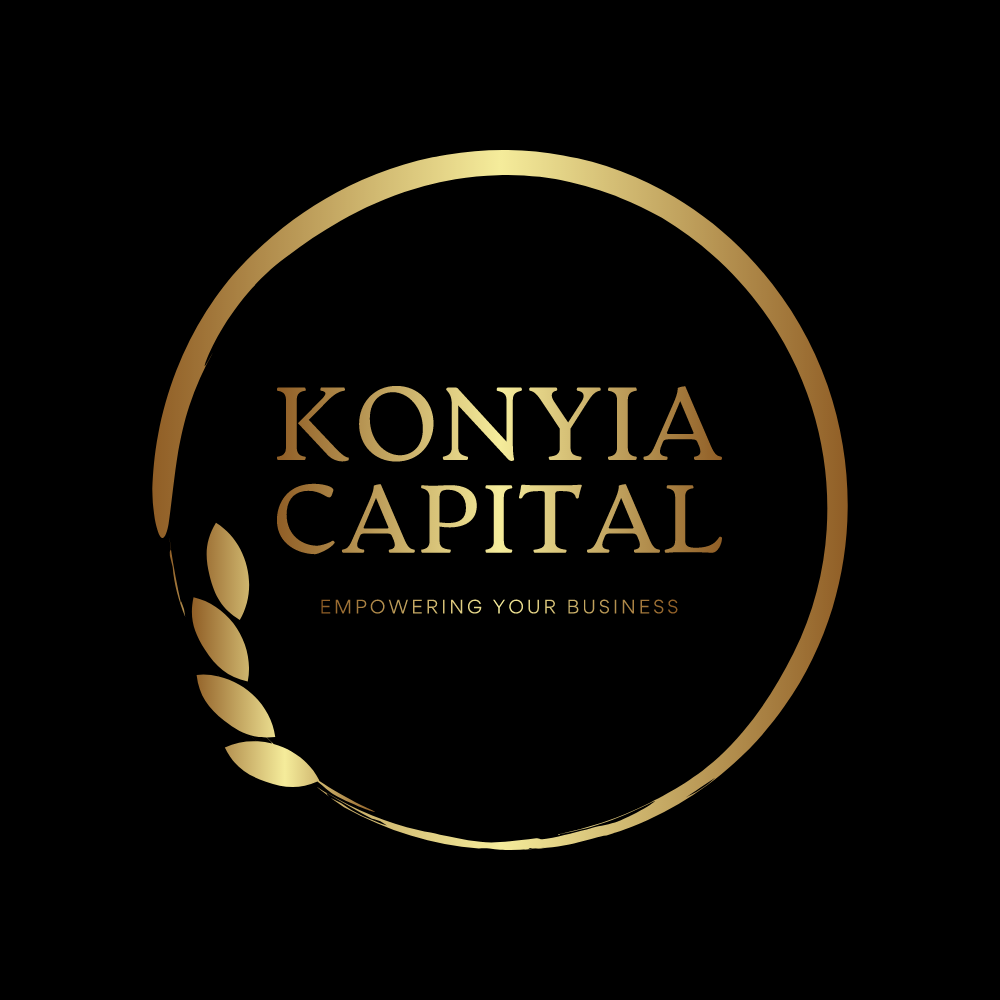Securing funding is often the biggest hurdle for startups, especially for those with less-than-perfect credit scores. Understanding bad credit business loans is crucial for entrepreneurs who may have faced financial setbacks but still strive for success. These specialized loans are designed to meet the needs of business owners with a credit history that might disqualify them from traditional lending options.
Bad credit business loans come in various forms, such as secured and unsecured loans, merchant cash advances, and lines of credit, each with its own set of terms and qualifications. Lenders offering these loans often focus on the potential for business growth and cash flow rather than solely on credit scores. This approach opens up financial opportunities for many startups that would otherwise be left out of the funding conversation.
When considering the best start up business loans for bad credit, it’s important to review interest rates, repayment terms, and any additional fees. Some lenders may offer more flexible terms to accommodate the unique challenges faced by startups with bad credit. With the right lender, these loans can be a stepping stone to building a stronger financial future for your business.
At Konyia Capital, we understand the nuances of securing startup funding with a less traditional credit background. Unlock Your Business Potential Today with Konyia Capital! Let’s Fuel Your Success Together – Apply Now!
Top Factors Lenders Consider for Bad Credit Loans
Lenders specializing in bad credit business loans often utilize a different set of criteria than traditional banks to assess loan eligibility. Understanding these top factors can help entrepreneurs better prepare their loan applications and increase their chances of approval, even with a less than perfect credit score.
One of the primary considerations is the business’s cash flow and income. Lenders want to see that a business has a steady stream of revenue that can comfortably cover loan payments. They may examine bank statements and financial records to evaluate the company’s financial health and the consistency of income over time.
Another key factor is the overall business plan and growth potential. A well-thought-out business plan can demonstrate to lenders that the entrepreneur has a solid strategy in place for success. This plan should detail the market opportunity, competitive landscape, marketing strategies, and projected financials.
Additionally, lenders may consider the industry experience of the business owner, as well as their personal investment in the company. Having ‘skin in the game’ shows commitment to the business’s future and can positively influence a lender’s decision.
Collateral is another aspect, wherein assets pledged can secure the loan. For lenders, collateral reduces the risk associated with lending to individuals with bad credit, as it provides an alternative means of repayment should the business fail.
Lastly, existing debts and financial obligations are scrutinized. A high level of existing debt can be a red flag for lenders, as it may indicate that the business is over-leveraged and may struggle to manage additional loan repayments.
By focusing on these factors, lenders can gauge the risk of extending credit to businesses with less-than-ideal credit histories and make informed lending decisions that support the growth of high-potential startups.
Secured vs Unsecured Business Loans Explained
When embarking on the journey to secure financing, it’s crucial for entrepreneurs to understand the distinction between secured and unsecured business loans. This knowledge is particularly important for those seeking the best start up business loans for bad credit, as the choice between a secured or unsecured loan can significantly impact the terms, approval odds, and obligations associated with the funding.
Secured business loans require the borrower to offer an asset as collateral. This could be real estate, equipment, or inventory, which the lender can seize if the borrower defaults on the loan. Secured loans are generally considered less risky for lenders and, as a result, may offer lower interest rates, higher borrowing amounts, and longer repayment periods. They can be a viable option for business owners with bad credit, as the collateral offsets the risk associated with their credit profile.
In contrast, unsecured business loans do not require any collateral. Without this security, lenders take on more risk, which often translates into higher interest rates and more stringent qualification requirements. However, for business owners unable or unwilling to pledge assets, unsecured loans offer a way to access capital without putting personal or business assets directly at risk. These loans may be more challenging to obtain with bad credit, but they are not impossible, especially when other aspects of the business are strong.
Choosing between a secured or unsecured loan comes down to assessing the business’s financial situation, risk tolerance, and the ability to provide collateral. While a secured loan might be more accessible and cost-effective for those with bad credit, the potential loss of assets is an important consideration. Meanwhile, an unsecured loan offers freedom from collateral but often at the cost of higher rates and more rigorous credit requirements.
Navigating the Best Bad Credit Loan Options

For entrepreneurs with less-than-stellar credit, finding the right financing can often feel like navigating a complex maze. Understanding the landscape of best start up business loans for bad credit is essential to making an informed decision that aligns with your business objectives and financial capabilities.
The first step is to conduct thorough research on potential lenders that specialize in bad credit business loans. These may include alternative lenders, community development financial institutions (CDFIs), and fintech companies that often have more flexible lending criteria than traditional banks. They typically use a holistic approach to evaluate your business performance and potential, not just your credit score.
It’s also important to consider the variety of loan products available. From merchant cash advances to invoice financing, each option serves different needs and comes with its own set of terms and conditions. For example, a merchant cash advance provides quick access to capital with repayments based on daily credit sales, which might be suitable for businesses with high credit card transaction volumes. On the other hand, invoice financing allows you to borrow against unpaid invoices, offering a cash flow solution if delayed payments are affecting your operations.
Another avenue to explore is microloans, which are typically smaller loan amounts that can be easier to qualify for with bad credit. They are often provided by nonprofit organizations with the aim of supporting underserved entrepreneurs. Additionally, some online lenders offer short-term loans with a straightforward application process, although these can carry higher interest rates.
Ultimately, the key to navigating bad credit loan options is to weigh the costs, benefits, and risks of each type of loan. This might involve comparing interest rates, repayment terms, potential fees, and the lender’s reputation. Armed with this information, business owners can make strategic choices to secure the financial support necessary for their business to thrive and grow.
Strategies to Improve Your Credit for Future Funding

Securing funding when you have bad credit is challenging, but it’s equally important to look towards the future. Improving your credit score can open up a wider range of financing options and potentially more favorable terms. Employing effective strategies to enhance your credit profile is a proactive approach that requires diligence and financial discipline.
One fundamental strategy is to consistently monitor your credit report for inaccuracies. Disputing any errors and getting them corrected can have an immediate impact on your credit score. It is also advisable to keep your credit utilization ratio low – ideally under 30% of your available credit – as this demonstrates responsible credit management to potential lenders.
Paying bills on time cannot be overstressed. Late payments can severely damage your credit score, so setting up automatic payments or reminders can help you avoid missed deadlines. If you have existing debt, creating a plan to pay it down steadily will not only boost your credit but also improve your debt-to-income ratio, making you a more attractive candidate for future funding.
Another strategy is to diversify your credit mix by incorporating different types of credit, such as a credit card, an auto loan, or a line of credit. This can positively affect your score, as it shows lenders that you can manage multiple types of credit responsibly. However, it’s crucial to not take on more debt than you can handle – only use credit when necessary and if you can afford to pay it back.
For businesses, it’s important to establish and maintain a positive business credit history separate from your personal credit. This involves ensuring your business is registered with business credit bureaus, working with suppliers who report payments, and paying all business-related debts promptly.
By implementing these strategies, not only can you improve your credit score, but you also position your business to be more competitive and creditworthy in the eyes of lenders. This long-term vision for financial health is a cornerstone of business success and growth.
Taking the Next Steps: Applying for Your Startup Loan

After researching the best start up business loans for bad credit, it’s time to take the next step: applying for your startup loan. The application process may seem daunting, but with the right preparation, you can navigate it smoothly. Begin by gathering all necessary documentation, including business plans, financial statements, and any records that demonstrate your ability to repay the loan. Lenders typically look for a solid business strategy and a clear understanding of how you plan to use the funds to grow your business.
When you’re ready to apply, be transparent about your credit situation. Some lenders specialize in working with entrepreneurs who have less-than-perfect credit, and they may offer solutions tailored to your unique circumstances. It’s crucial to read all the terms and conditions before signing any agreement to ensure you fully comprehend the repayment schedule, interest rates, and any additional fees.
Remember, applying for a startup loan is just the beginning of a financial journey. It’s an investment in your business’s future, and selecting the right lending partner can make all the difference. At Konyia Capital, we understand the hurdles you face and are committed to guiding you through the loan process with ease and transparency.
Unlock Your Business Potential Today with Konyia Capital! Don’t let bad credit hold you back from achieving your entrepreneurial dreams. We’re here to fuel your success with tailored financial solutions that fit your needs. Let’s Fuel Your Success Together – Apply Now!

